Antioxidant Supplements: The Facts Behind the Hype
Antioxidant Supplements: The Facts Behind the Hype
In the bustling aisles of health stores and the infinite scroll of wellness websites, antioxidant supplements stand tall amidst claims of miraculous health benefits. From reversing aging to fighting chronic diseases, these supplements are touted as the elixir of life. But what are antioxidants, really, and do they live up to the hype?
What Are Antioxidants?
At the core of countless health discussions, antioxidants are often lauded as the sentinels guarding our cells against the relentless assault of free radicals. But to truly appreciate the role of these molecular heroes, it's essential to understand the battleground of our bodies on a cellular level.
The Battle Within: Free Radicals vs. Antioxidants
Our bodies are battlegrounds for a constant, invisible war between free radicals and antioxidants. Free radicals are unstable molecules that can damage cells, proteins, and DNA by stealing electrons through a process known as oxidation. This process is natural and unavoidable, arising from everyday metabolic processes like breathing, exercising, and even digesting food. External factors such as pollution, UV exposure, smoking, and unhealthy diets can also increase free radical production.
In moderation, free radicals play a crucial role in our health, such as fighting infections. However, when their numbers grow too high, they cause oxidative stress, a harmful state implicated in aging, inflammation, and a wide array of diseases including heart disease, diabetes, and cancer. This is where antioxidants step in.
The Shield of Health: Understanding Antioxidants
Antioxidants are molecules stable enough to donate an electron to a rampaging free radical and neutralize it, thus reducing its capacity to damage cells. This heroic act doesn't turn antioxidants into free radicals because they are uniquely stable in either form. They act as a natural counterbalance to free radicals, mitigating the potential damage and maintaining the oxidative balance within the body.
There are numerous types of antioxidants, each with its unique mechanism of action and benefits. Some of the most well-known include:
- Vitamin C: A water-soluble antioxidant that protects cells' DNA, proteins, and lipids from oxidative damage. It also plays a critical role in collagen production, wound healing, and immune function.
- Vitamin E: A fat-soluble antioxidant that protects cell membranes from oxidation. It's particularly important for skin health, immune function, and preventing inflammation.
- Selenium: This trace mineral is a component of antioxidant enzymes that protect against oxidative damage and also support immune function and thyroid health.
- Carotenoids: A family of pigments found in plants that include beta-carotene, lycopene, lutein, and zeaxanthin. They are known for their ability to boost the immune system and protect against UV and blue light-induced damage.
- Flavonoids: Found in fruits, vegetables, tea, wine, and chocolate, flavonoids have a wide range of health benefits, including anti-inflammatory and anti-carcinogenic properties.
The Antioxidant Defense System
The human body has a complex antioxidant defense system that includes enzymes like superoxide dismutase (SOD), catalase, and glutathione peroxidase. These enzymes play a pivotal role in dismantling free radicals but rely on dietary intake of antioxidant nutrients to function optimally.
While our bodies produce some antioxidants endogenously, many essential antioxidants cannot be synthesized internally and must be obtained from the diet. This fact underscores the importance of consuming a diverse diet rich in fruits, vegetables, whole grains, nuts, and seeds nature's best sources of antioxidants.
Understanding antioxidants and their role in combating free radicals illuminates the crucial balance required for maintaining health and preventing disease. It also highlights the significance of dietary choices in supporting the body's natural defenses. As research continues to unravel the complexities of this microscopic warfare, the adage "let food be thy medicine" has never been more pertinent, reminding us of the power of a nutrient-rich diet in fortifying our antioxidant defenses.
The Science Behind Antioxidants and Health
The body's natural antioxidant defense system is a testament to the crucial role these substances play in maintaining health and preventing disease. By neutralizing free radicals, antioxidants prevent and repair the damage caused by oxidative stress, a condition linked to chronic diseases including heart disease, type 2 diabetes, neurodegenerative diseases like Alzheimer's, and certain cancers.
Antioxidants also play a role in modulating gene expression and protecting against inflammation, further contributing to their disease-preventing capabilities. For example, the antioxidant properties of vitamin E contribute to its ability to protect against heart disease by preventing the oxidation of LDL cholesterol, a key factor in the development of atherosclerosis.
Research Findings on Antioxidants and Health Outcomes
Numerous epidemiological studies have found strong associations between diets rich in antioxidants and a reduced risk of various chronic diseases. For instance, populations consuming diets high in fruits, vegetables, and whole grains foods abundant in antioxidants tend to have lower incidences of heart disease and certain cancers.
However, when these antioxidants are isolated and taken as supplements, the expected health benefits often fail to materialize. Clinical trials on antioxidant supplements have produced mixed results. Some studies have found no significant benefit in preventing heart disease, cancer, or other conditions, while others have even suggested potential harm. For example, high doses of beta-carotene supplements were found to increase the risk of lung cancer in smokers, according to the Alpha-Tocopherol, Beta-Carotene Cancer Prevention (ATBC) Study.
The Complexity of Antioxidant Supplements vs. Whole Foods
The disparity in health outcomes between antioxidants consumed through diet and those taken as supplements can be attributed to several factors. Whole foods contain a complex matrix of nutrients, including fiber, vitamins, minerals, and various antioxidants that interact synergistically to exert health benefits. In contrast, antioxidant supplements provide a concentrated dose of one or a few antioxidants, without the beneficial context of whole foods.
Furthermore, the bioavailability and effectiveness of antioxidants can differ significantly between foods and supplements. For example, the natural form of vitamin E (d-alpha-tocopherol) found in foods is more active in the body than the synthetic form (dl-alpha-tocopherol) commonly used in supplements.
The Importance of a Balanced View
The current scientific consensus suggests that while antioxidants are vital for health, the best way to obtain them is through a varied and balanced diet rich in fruits, vegetables, and whole grains rather than through supplements. This approach ensures the intake of a wide range of antioxidants in their most effective form, along with other essential nutrients that support overall health.
While research continues to explore the potential therapeutic applications of antioxidant supplements, particularly in cases of nutritional deficiencies or specific medical conditions, the emphasis remains on whole foods as the primary source of these vital nutrients.
There is no doubt, that the science behind antioxidants and health underscores the complexity of nutritional biochemistry and the importance of dietary patterns in disease prevention and health promotion. As our understanding of antioxidants evolves, it reaffirms the wisdom of focusing on whole foods for optimal health.
Studies and Outcomes
Let's dive a little deeper into the realm of scientific studies that reveal the nuanced effects of antioxidant supplements on health, illuminating both their potential benefits and limitations.
The Age-Related Eye Disease Study (AREDS)
The Age-Related Eye Disease Study (AREDS), conducted by the National Eye Institute, is one of the most cited research efforts highlighting the benefits of antioxidant supplements. This study focused on patients at high risk for advanced age-related macular degeneration (AMD), a leading cause of vision loss in older adults. The AREDS formula, which includes high doses of antioxidants vitamins C and E, beta-carotene, zinc, and copper, was found to significantly reduce the risk of AMD progression by about 25 percent over a five-year period. A follow-up study, AREDS2, aimed to optimize the formula by adding lutein, zeaxanthin, and omega-3 fatty acids while removing beta-carotene, which had been linked to an increased risk of lung cancer in smokers. AREDS2 found that lutein and zeaxanthin could be safer alternatives to beta-carotene, further supporting the role of specific antioxidants in eye health.
Antioxidants and Cardiovascular Disease: Mixed Evidence
When it comes to cardiovascular health, the evidence surrounding antioxidant supplements is more mixed. While oxidative stress is a known factor in heart disease, and antioxidants in food have been associated with heart health, studies on supplements have not shown consistent benefits. For example, the Heart Protection Study evaluated the effects of vitamin E, vitamin C, and beta-carotene supplements in over 20,000 people at high risk for heart events. The study concluded that these supplements did not reduce the risk of major cardiovascular events, challenging the notion that supplemental antioxidants have the same benefits as those from food sources.
The Beta-Carotene and Cancer Risk: A Cautionary Tale
The role of antioxidants in cancer prevention has also been extensively studied, with particular attention to beta-carotene, a precursor to vitamin A. The Alpha-Tocopherol, Beta-Carotene Cancer Prevention (ATBC) Study among Finnish male smokers found that those supplemented with beta-carotene had an 18% higher risk of lung cancer. Similarly, the Beta-Carotene and Retinol Efficacy Trial (CARET) also reported increased lung cancer risk and higher mortality rates in participants taking beta-carotene and retinol (vitamin A) supplements. These findings suggest that high doses of certain antioxidants can have pro-oxidant effects, leading to increased rather than decreased risk of cancer, particularly in specific populations such as smokers.
Interpreting the Outcomes: A Complex Picture
These studies illustrate the complex relationship between antioxidant supplements and health outcomes. The positive results from the AREDS and AREDS2 studies show promise for targeted supplementation in the context of specific diseases like AMD. However, the lack of benefit and potential harm observed in studies examining cardiovascular disease and cancer highlights the importance of caution and further research.
The discrepancy between the health benefits of dietary antioxidants and the mixed outcomes of supplement studies underscores a critical point: the health effects of antioxidants cannot be fully replicated by supplements. This complexity suggests that antioxidants work best within the intricate matrix of whole foods, where they interact synergistically with other nutrients to support health.
While antioxidant supplements may have a role in specific clinical scenarios, the broad-spectrum approach to preventing disease and promoting health appears to lie in a diet rich in naturally occurring antioxidants from a diverse range of fruits, vegetables, and other whole foods.
Antioxidant Supplements vs. Natural Sources
The debate between the benefits of antioxidant supplements versus natural sources of food is ongoing, with a growing body of evidence leaning towards the superiority of whole foods in providing optimal health benefits. This preference for natural sources over supplements can be attributed to several key factors that influence how antioxidants are absorbed and utilized by the body, as well as their overall impact on health.
Bioavailability and Synergy
Bioavailability refers to the degree and rate at which a substance, such as an antioxidant, is absorbed into the bloodstream and becomes available at the site of physiological activity. Studies have shown that the bioavailability of antioxidants in foods is often higher than that of their supplemental counterparts. This can be attributed to the "food matrix," a complex physical and chemical system that includes nutrients, fiber, and other compounds, which can significantly influence the bioavailability of antioxidants.
For example, lycopene, a powerful antioxidant found in tomatoes, is more readily absorbed by the body when consumed from cooked tomatoes than from supplements. The cooking process breaks down the tomato's cell walls, making lycopene more available. Furthermore, when consumed as part of a meal that includes fats, such as olive oil, the absorption of lycopene is enhanced due to its fat-soluble nature.
The synergistic effect of the various nutrients found in whole foods also plays a critical role in the superior health benefits observed. Antioxidants in food do not work in isolation but interact with other vitamins, minerals, and phytochemicals to enhance their effects. This synergy can lead to more potent antioxidant activity and greater protection against oxidative stress than can be achieved by taking individual antioxidant supplements.
Risks of Excessive Intake
While antioxidants are essential for health, there is such a thing as too much of a good thing. Excessive intake of antioxidant supplements can disrupt the body's natural oxidative balance, potentially leading to adverse health effects. The body maintains a delicate balance between antioxidants and free radicals; too many antioxidants can tip this balance, making the antioxidants pro-oxidant in nature, which can cause cellular damage rather than prevent it.
Moreover, high doses of certain antioxidants have been linked to health risks. As previously mentioned, high doses of beta-carotene supplements have been associated with an increased risk of lung cancer in smokers. Similarly, excess vitamin E supplementation has been linked to an increased risk of hemorrhagic stroke.
The Argument for Whole Foods
The evidence suggests that a diet rich in fruits, vegetables, nuts, seeds, and whole grains all-natural sources of antioxidants is associated with a reduced risk of many chronic diseases, including heart disease, diabetes, and certain cancers. These foods provide a broad spectrum of antioxidants and other nutrients in proportions that are naturally occurring and beneficial to health.
While antioxidant supplements can play a role in addressing specific nutritional deficiencies or health conditions, the consensus among nutritionists and health professionals is that the best way to obtain antioxidants is through a balanced diet rich in natural sources. This approach ensures not only optimal absorption and utilization of antioxidants but also the intake of a wide variety of nutrients that contribute to overall health and well-being.
The Hype Around Antioxidants: Marketing vs. Reality
The conversation around antioxidants has been amplified by marketing strategies that often present these compounds as the ultimate solution to a myriad of health issues. This portrayal can blur the lines between the scientific reality of how antioxidants work and the exaggerated claims seen in advertisements, leading to misconceptions about their true benefits.
The Marketing of Antioxidants
In the realm of health and wellness marketing, antioxidants have been hailed as a panacea, capable of everything from reversing aging to preventing chronic diseases. This narrative is compelling and has contributed to the booming industry of antioxidant supplements, with products ranging from pills and powders to fortified foods and beverages. The marketing often leverages scientific terminology and selectively cites research to bolster claims, making it challenging for consumers to distinguish between evidence-based information and marketing hyperbole.
Misconceptions and Misinterpretations
One of the critical issues with the marketing of antioxidant supplements is the oversimplification of the science behind antioxidants. Advertisements rarely explain the complex nature of oxidative stress, the body's natural antioxidant defenses, and the nuanced results of scientific studies on antioxidant supplementation. For instance, while some research suggests benefits from specific antioxidant supplements under certain conditions, these findings are often generalized to promote a wide array of products, ignoring the specificity and limitations of the research.
This misrepresentation can lead to misconceptions, such as the belief that more antioxidants are always better, ignoring the potential risks associated with excessive intake. It can also overshadow the importance of dietary diversity and the role of other nutrients and compounds found in whole foods that contribute to health beyond antioxidants.
The Reality of Antioxidants and Health
The scientific consensus acknowledges the importance of antioxidants in maintaining health and preventing disease. However, it also emphasizes that the most healthful and effective way to obtain these nutrients is through a varied diet rich in fruits, vegetables, nuts, and seeds. These foods offer a complex array of nutrients that work synergistically to support the body's health, a benefit that isolated supplements struggle to replicate.
Research has consistently shown that populations with diets rich in plant-based foods have lower risks of many chronic diseases. These findings support the view that the health benefits attributed to antioxidants are most likely due to the collective action of numerous compounds found in whole foods, rather than the isolated effect of antioxidants.
Navigating the Hype
For consumers navigating the crowded marketplace of health products, a critical and informed approach is necessary. Understanding that the sensational claims made by some marketers may not fully align with scientific evidence is crucial. While antioxidants play a vital role in health, they are not a cure-all, and their most reliable source remains a balanced and nutritious diet.
In summary, while the marketing of antioxidants often promises extensive health benefits, the reality is more complex. A holistic approach to nutrition, emphasizing whole foods over supplements, remains the cornerstone of a healthy lifestyle. This perspective encourages not only a more nuanced understanding of antioxidants but also a broader appreciation for the diverse nutrients that contribute to overall well-being.
Incorporating Antioxidants into Your Diet
Incorporating antioxidants into your diet is not only a path toward better health but also an opportunity to explore and enjoy a wide array of flavors and foods. The key to maximizing your antioxidant intake is diversity eating a rainbow of foods ensures you receive a broad spectrum of antioxidants, each with unique health benefits.
The Colorful Diet: A Visual Guide to Antioxidants
Each color in fruits and vegetables is associated with specific types of antioxidants. For example, beta-carotene in orange and yellow produce, lycopene in red foods, or anthocyanins in blue and purple items. Here's how you can incorporate a variety of colors into your meals:
- Orange/Yellow: Sweet potatoes, carrots, mangoes, and pumpkins are excellent sources of beta-carotene and vitamin C.
- Red: Tomatoes, watermelon, and red peppers are not only rich in lycopene but also vitamin C and quercetin.
- Green: Leafy greens like spinach, kale, and broccoli are packed with vitamins A, C, and E, along with minerals like iron and calcium.
- Blue/Purple: Blueberries, blackberries, eggplants, and plums provide anthocyanins, which have been linked to heart health and a lower risk of hypertension.
- White/Brown: Garlic, onions, and mushrooms, though not colorful, are high in allicin, selenium, and flavonoids, contributing to antioxidant activity.
Further Dietary Swaps and Additions
Expanding on the easy swaps and additions, here are more ways to enrich your diet with antioxidants:
- Incorporate nuts and seeds: Almonds, walnuts, flaxseeds, and chia seeds are not only antioxidant-rich but also provide healthy fats and fiber. Sprinkle them on salads, oatmeal, or yogurt.
- Use herbs and spices: Many herbs and spices, including turmeric, cinnamon, and ginger, have potent antioxidant properties. They can add flavor to dishes while boosting your antioxidant intake.
- Opt for whole grains: Choose whole grains like oats, barley, and farro over refined grains. They offer more nutrients, including antioxidants, and can help improve gut health.
- Enjoy dark chocolate: In moderation, dark chocolate (at least 70% cocoa) can be a delicious source of antioxidants, particularly flavonoids.
Making It a Lifestyle
Incorporating antioxidants into your diet isn't about a single meal or superfood; it's about making consistent choices that contribute to a vibrant, varied diet. Here are additional tips for integrating these nutrient-rich foods into your lifestyle:
- Start with breakfast: Begin your day with antioxidant-rich foods, such as oatmeal topped with berries and nuts, or a smoothie packed with fruits, greens, and seeds.
- Plan meals around vegetables: Make vegetables the star of your meals, filling at least half your plate with a variety of colorful veggies.
- Snack wisely: Choose snacks that provide a nutritional punch, like a small handful of nuts, fresh fruit, or sliced vegetables with hummus.
By focusing on natural, whole foods and incorporating a variety of colors and types into every meal, you can effortlessly boost your antioxidant intake. This approach not only enhances your overall diet but also supports your body's defense against oxidative stress and inflammation, contributing to long-term health and wellness.
As You Can See
Antioxidants are essential for health, but the best way to consume them is through a balanced diet rich in fruits, vegetables, and whole grains. While supplements can play a role in specific nutritional strategies, they should not replace whole food sources. As with any supplement, consult with a healthcare professional before beginning an antioxidant regimen, especially if you have underlying health conditions or are pregnant.
The allure of antioxidants is strong, and while they are indeed powerful compounds in the fight against oxidative stress, the hype around supplemental forms deserves scrutiny. Focusing on a nutrient-dense diet will provide a broad spectrum of antioxidants and other healthful nutrients necessary for optimal health.
If and when you are ready or in need of high-quality antioxidants, by all means, check out Essentials Line, where you will find everything you need to provide your body with a solid nutritional foundation to accompany your daily diet.
Always Remember...
We would love to hear your thoughts on this, or any other article we write, so please, drop us your comments, ideas, input, and suggestions in the comments below.
And, by all means, if you think anyone in your world might like something we write, use the share buttons below to help us spread the word!
Until next time...PROGRESS, not PERFECTION!
Don't forget, always consult your physician before making any changes to your diet or exercise regimen.
Live a 3D Life...Decisions Determine Destinations!


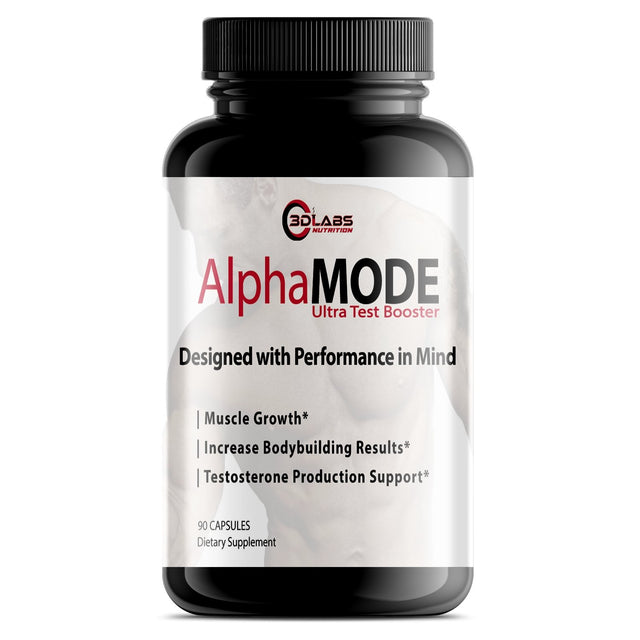
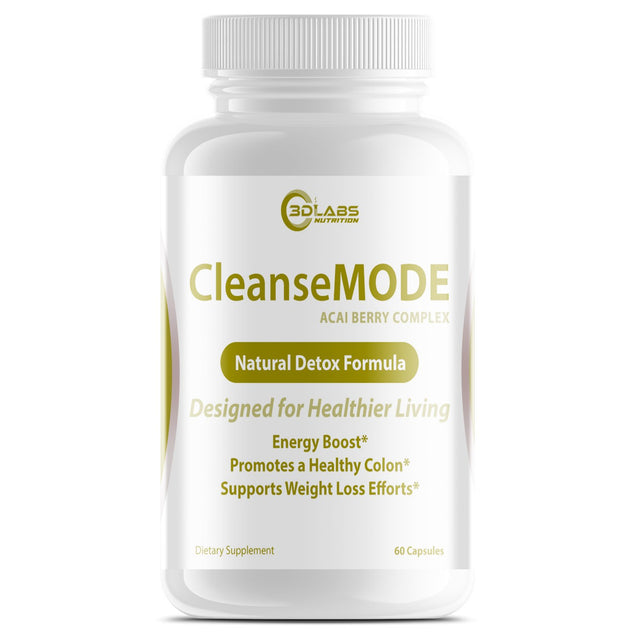
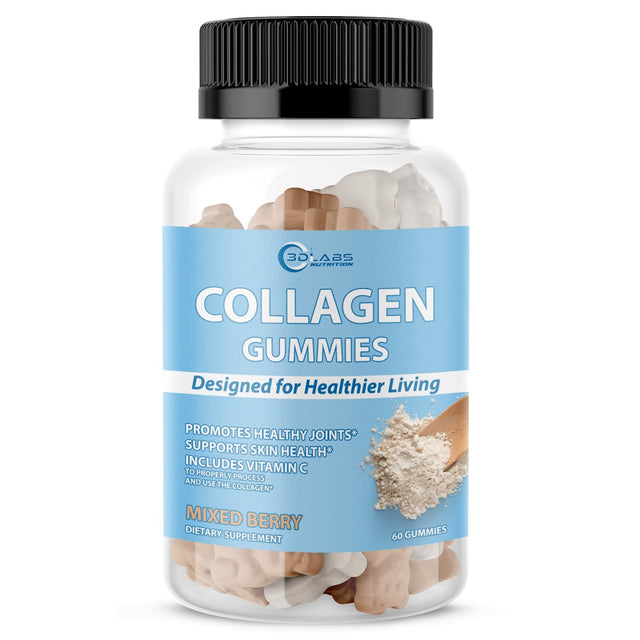
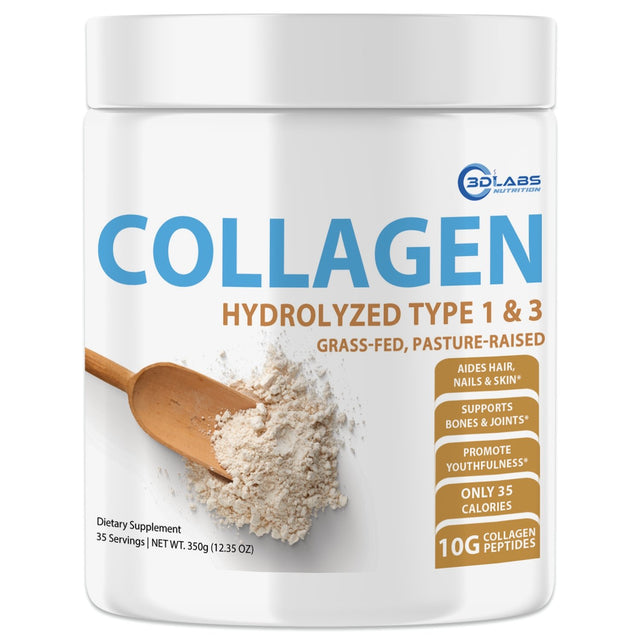
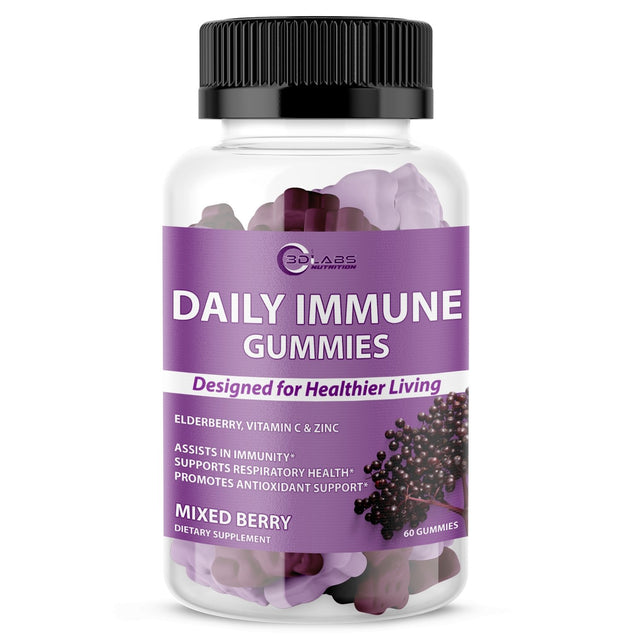
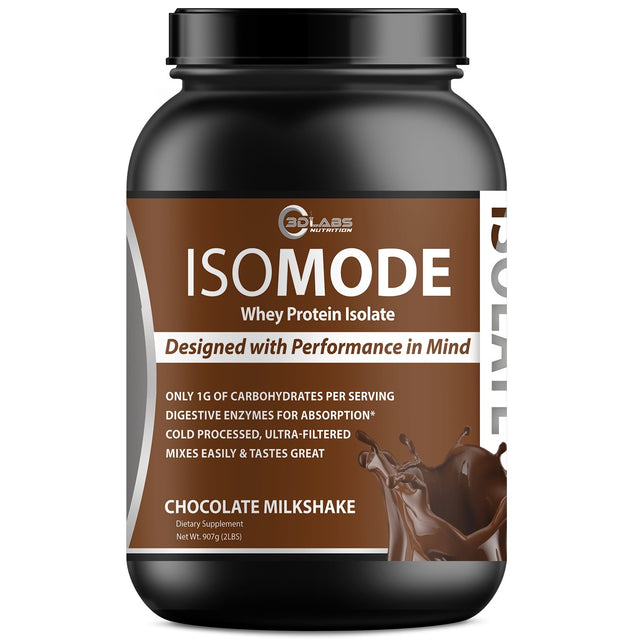
0 Comments
There are no comments for this article. Be the first one to leave a message!